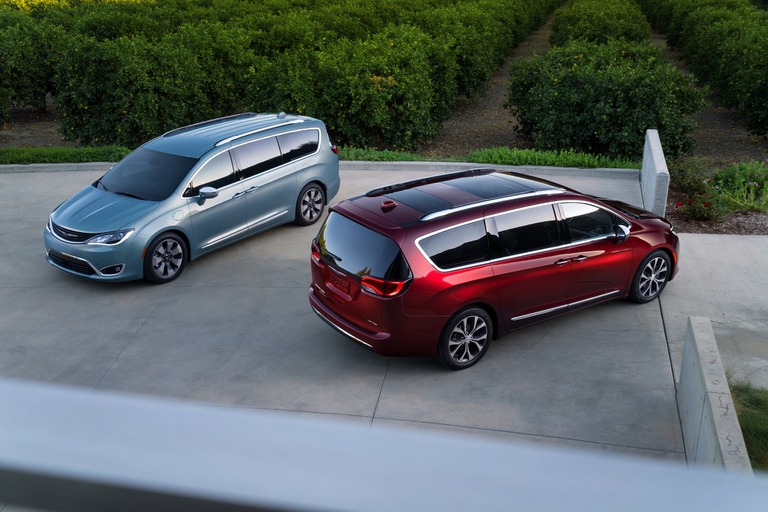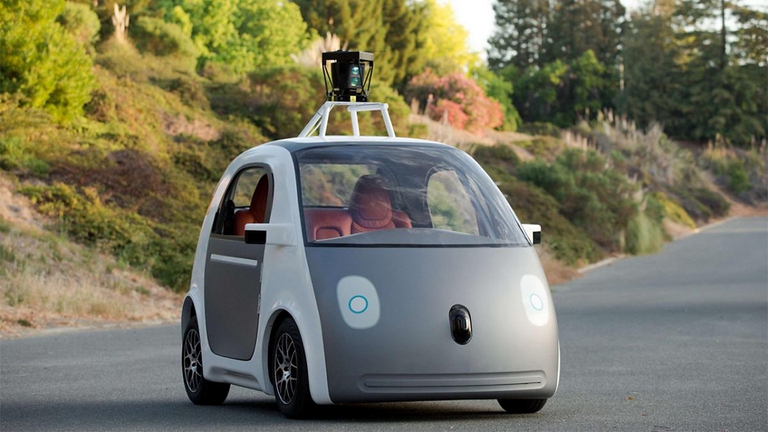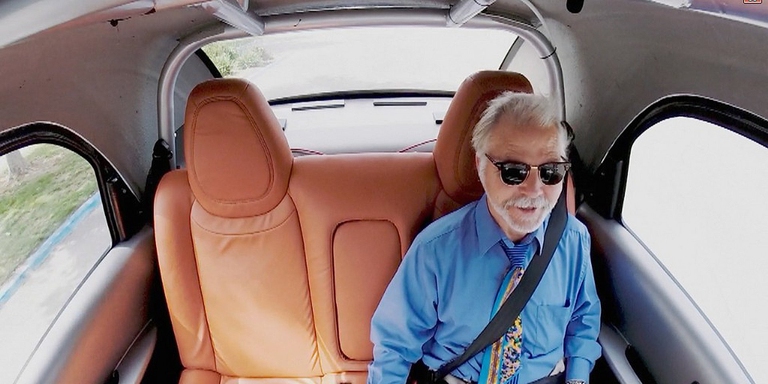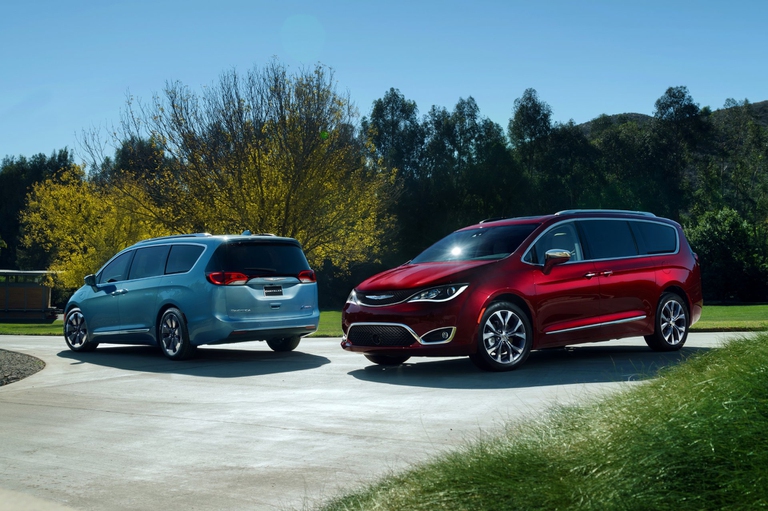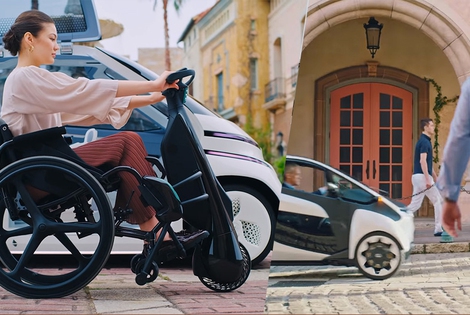
Milan has announced one of Europe’s most ambitious mobility schemes, known as Strade Aperte (open roads). Its goal is to reduce cars in phase 2 of the lockdown by increasing bike lanes and pedestrian areas.
Google and Fiat Chrysler will be partner in the development of self-driving cars. The prototypes will be based on the Chrysler Pacifica hybrid vehicle.
A brief acquaintance, a quick engagement. Finally, the marriage. The FCA group and Alphabet – the holding company that includes Google – have signed a deal for the development of self-driving cars. After about three months of negotiations, on one hand Sergio Marchionne, CEO of Fiat Chrysler, obtained Google’s self-driving-car technology. On the other the Californian giant found a leading car manufacturer that will realise the hi-tech prototypes of autonomous cars, while waiting for the definitive models that will appear for the first time in 2019-2020.
It’s a historic partnership that, on one hand, numbers the FCA group – that includes Fiat, Alfa Romeo, Maserati, Lancia, Abarth, Jeep, Chrysler, Dodge and Ram – among the most innovative car manufacturers on the market, bridging a technological gap between the Italian group and its competitors Audi, Mercedes-Benz or Tesla. On the other, it promotes the development of self-driving cars and sustainable mobility. A true revolution in the way cars are conceived: in the future there could be “empty” vehicles picking up passengers in different areas of the city, which would drastically reduce the vehicles in circulation. These would probably be hybrid or even electric.
FCA will provide the multinational company Mountain View with a hundred Chrysler Pacifica minivans that will be turned into travelling laboratories for developing new technology. Why this model? A replacement of Grand Voyager, Pacifica led to the development of the first plug-in hybrid powertrain that uses batteries rechargeable in common sockets of the FCA group. The American minivan combines a petrol-fuelled 3.6 V6 engine with two electric engines so that users can run up to 48 km just with the electric technology. This vehicle is the first technological invention by Fiat Chrysler Automobiles to create a path towards a new mobility (that would probably be driverless).
The two companies reached the deal after that, from 2009 to today, tests on Google cars allowed the vehicles to travel for more than 4 million kilometres, of which 2.4 million autonomously, using the interaction between the electric engine, radar sensors, lasers and software based on Google Maps technology/cartography. The project uses 21 outfitted Lexus RX450h vehicles and 33 prototypes called Koala. “Collaborating with Google provides an opportunity for Fiat Chrysler to partner with one of the world’s leading technology companies to accelerate the pace of innovation in the automotive industry”, Sergio Marchionne commented on the deal with the Californian factory. “The experiences both companies gain will be fundamental to delivering automotive technology solutions that ultimately have far-reaching commercial benefits”, he added. “Self-driving cars will make our roads safer and bring everyday destinations within reach for those who cannot drive”, FCA stated when announcing the historic deal. The ultimate goal is “creating a fully self-driving car that can take people from A to B with the touch of a button”.
The opinion of the Californian giant is as enthusiastic as that of the Italian company. Indeed John Krafcik, the former Hyundai Motor America chief and current CEO of the Google Car project, stated that the FCA group can rely on a successful and experienced team of engineers and Pacifica is suitable to include the technology of the Big G. In addition, thanks to this partnership, a new Google branded car will be manufactured by FCA. Tim Cook, Apple’s CEO isn’t too happy about this because Apple is designing a self-driving electric car, too. Cupertino’s commercial partners for the project named Titan are still unknown at the moment. Rumour has it that a team of engineers is working very hard in Silicon Valley as well as in a branch in Berlin, but the strategy to put driverless vehicles on the road is still in its early stages and could lead to no results before 2019, the year when FCA and Google aim to present its first self-driving cars. This unless recent events encourage Apple to reach a deal with Mercedes-Benz, BMW or Volkswagen – the most qualified partners – or to rely on the Austrian company Magna Steyr in order to create the first iCar.
No matter which company will be the pioneer of driverless cars, the development of new technology will considerably reduce car accidents caused by human error, which accounts for 94% of the 33,000 accidents taking place every year in the United States. And it will also allow drivers to give up older and more polluting cars and cut emissions.
Siamo anche su WhatsApp. Segui il canale ufficiale LifeGate per restare aggiornata, aggiornato sulle ultime notizie e sulle nostre attività.
![]()
Quest'opera è distribuita con Licenza Creative Commons Attribuzione - Non commerciale - Non opere derivate 4.0 Internazionale.
Milan has announced one of Europe’s most ambitious mobility schemes, known as Strade Aperte (open roads). Its goal is to reduce cars in phase 2 of the lockdown by increasing bike lanes and pedestrian areas.
Formula 1, the world’s most important auto racing championship, has decided to turn the page and aim for carbon neutrality with the support of its teams, drivers and the whole racing circus.
Toyota and LifeGate began telling the story of hybrid mobility back in 2006, now, on the road to the Tokyo 2020 Olympics, they’re still treading the path of sustainable mobility. Here are the main steps of the journey.
Germany’s first solar bicycle lane could be the prototype for the roads of the future. The photovoltaic tiles melt snow and ice, and are capable of absorbing noise.
The Vespa is back in an electric version. Production has just started and the first models can be reserved online starting from October.
The city of Utrecht, in the Netherlands, is home to a bridge for cycling and walking that stretches over roof garden of a Montessori school. This project enhances practicality and will allow families to bring children to school by bike, passing through green areas. Despite their functionality, bridges are often seen as an infrastructure that is
The Lego hair bike helmet is the latest Internet craze. For now it’s just a prototype but production on a large scale will probably start soon.
Just as fires often give way to new growth, after the Dieselgate scandal, which saw Volkswagen cheating on US emission rules, the German car manufacturer radically changed course, beginning to focus on sustainable mobility. The German car company aims to propose thirty zero-emission models and produce at least one million battery electric vehicles by 2025. An ambitious mission
Sustainable, two-wheel mobility is triumphing in Copenhagen. After years of investments, policies, and infrastructural changes, bikes now outnumber cars in the city centre. The website Copenhagenize has released data linked to the number of vehicles entering the city centre, which are monitored by the city’s administration on a daily basis. Last year, 265,700 bikes have entered
